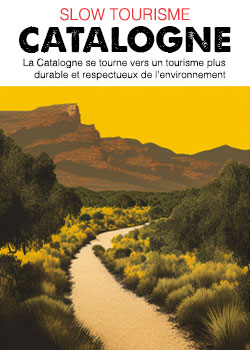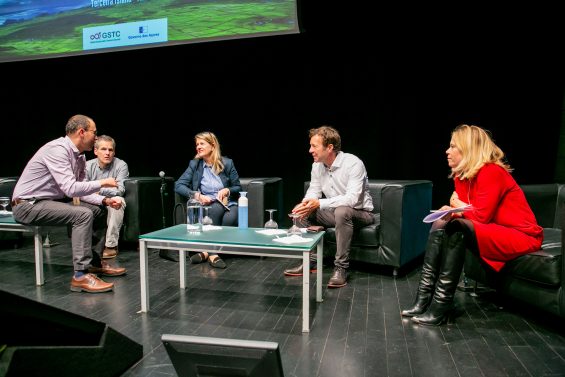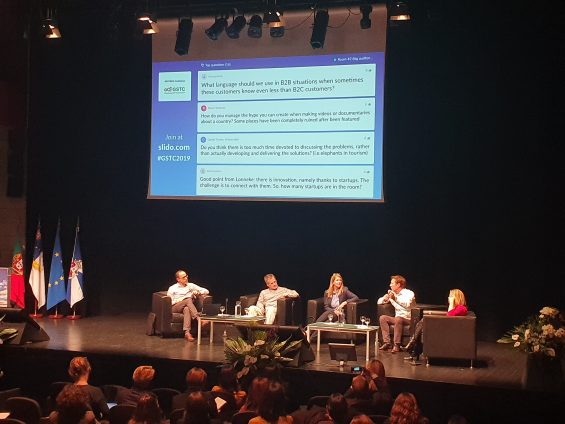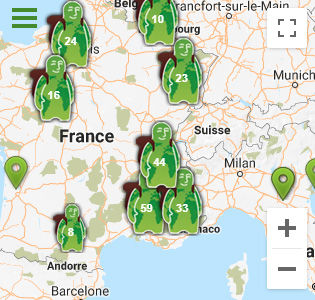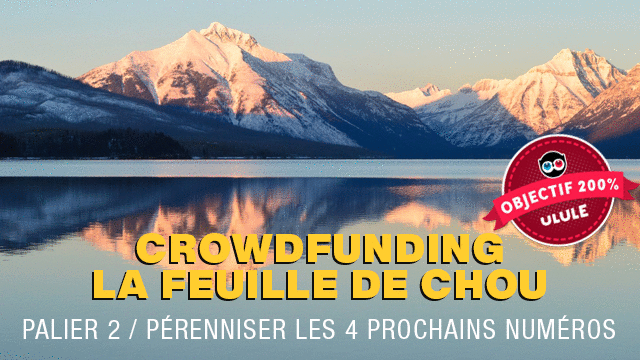Reporting back from GSTC 2019: Marketing sustainability and influencing travellers’ preferences
From #GSTC2019, the French-speaking media platforms TV5 Monde and Voyageons Autrement, which aim at raising awareness on sustainable tourism, are reporting – with the support of the French national association for sustainable tourism (ATD) – on the conference’s most interesting panels and presentations. Today is all about « marketing sustainability and influencing travellers’ preferences » by Professor Xavier Font, from the University of Surrey in the UK.
Greenhushing rather than greenwashing
« We are all hypocrites, starts Xavier Font, Professor of Sustainability Marketing at the University of Surrey, we are all hypocrites about flights, we sanitise our language, displace and minimise our responsabilities in terms of sustainable tourism« . Well, the tone is given right from the start of his presentation! Professor Font is also relentlessly using the word « sustainable » although he strongly advises not to use it in any business communication to customers: « The word « sustainable » is still associated with less quality, less service, not tasting that good« … The idea is to make people buy sustainable products without knowing they are, direct them in choosing better companies offering quality who have an impact on sustainability. Professor Font concludes that marketing sustainability should be more about greenhushing than greenwashing.
Being better at marketing groups of tourists
Professor Font then states he is rather fed up with the too common obsession of marketing first-time travellers: « This is creating seasonability and crowdedness in our honey spots. There are still too many destinations producing brochures in 8 languages although people from these different countries probably don’t want to see or experience the same things »! He complains about the amateurism in marketing sustainable tourism and urges businesses to use indicators as well as smart technology. He gives the example of Barcelona. The city is looking at the carbon footprint produced per guest and per night, as well as the income per guest and per night. « The results give a quadrant in which you’ll get the ideal combination high income/low carbon footprint. This is the group they’ll have to study and target ». He also mentions the use by hotel chains like Scandic of smart technology to nudge behaviour. For example, you’ll be told how much water you use and then be encouraged to reduce your consumption and therefore save energy on heating it.
Not one communication message but at least five!
According to professor Font, using only one message to market sustainability doesn’t work at all. « You’ll need to find different ones to address the following issues: reduce the negative impacts, attract more customers, improve your customers’ satisfaction, increase your customers’ expenditure, increase loyalty and reduce seasonality ». He adds that the word « sustainability » is definitely to ban from any form of communication as it is too abstract. « What needs to be done is to break it down to meaningful and manageable actions. For example, ask customers if they like animals, plants, the wellbeing of local people and make it relevant. You need to find out what your customers need to know and how the sustainability will help them make that done », he concludes.
Discussion panel
The presentation moves to a discussion moderated by Professor Xavier Font with panelists Rika Jean-François, CSR Commissioner at ITB Berlin, Rob Holmes, Founder & Chief Strategist at GLP Films, Lonneke de Kort, CEO of BookDifferent and Gerben Hardeman, and Responsible Travel & Tourism Manager at ANVR (the Dutch Travel Trade Association).
Rob Holmes shares the same view on the use of the word « sustainability » in their marketing strategy and products: « We are producing films and creating contents to help our customers reach their audience. Sustainability is part of the fabric« . His production company, GLP Films, is not pushing eco labels but adding them as parts of the experience. A few minutes of a film made by GLP Films for Georgia is shown to the public. The storytelling is about daily life in Georgia shown through different stories: a young female chef preparing traditional cuisine in a restaurant, a man paragliding in the mountains as his grand-mother used to! The idea is to show the ex-USSR republic in a different way, behind the scene and through real human stories.
Rika Jean-François brings a more general view on perception of sustainable tourism: « We’ve been advocating sustainable tourism, community-based tourism for a long time but I am afraid I can’t see any change in mainstream tourism. Well, at least we are not laughed at anymore when we talk about sustainable tourism to them but I can only see a change happening with the younger generations ».
Lonneke de Kort starts with a statement: « To be honest, we don’t see any increase in bookings because of the Greta Thunberg effect… I haven’t seen a growth either in certified accommodations for 7 years, although more tour operators are getting certified. We have to find an alternative route ». She also mentions business travel: « It can be a big push because there is a demand. It’s not only about leisure. Professor Font adds business travel actually represents 50% of tourism expenditure across the world and admits he should have included it in his presentation. Lonneke also mentions innovation in sustainable tourism: « I think there is enough innovation especially with the growth of startups but we don’t integrate it enough. Also, startups are becoming a bigger part of the tourism economy and the younger generations will want more of them ». Lonneke also advocates for a flying tax.
To Gerben Hardeman, the development of sustainable tourism is not going fast enough: « We should do more storytelling and we have to communicate differently. It’s not business as usual anymore but business as unusual! Communication shouldn’t be based only on profile and gender but also on passions and beliefs. People now are buying from brands they believe in. We need to use emotional and appealing language to nudge the customers into the better choice ». The idea behind is to normalise sustainability into supply chains of tourism and that sustainable tourism finally takes the leads.
Video available on FB – soon on Youtube
GSTC2019: Marketing sustainability and influencing travelers’ preferences
#GSTC2019 in the AzoresMarketing sustainability and influencing travelers’ preferencesModerator: Prof. Xavier Font, Professor of Sustainability Marketing, University of SurreyPanelists:• Rika Jean-Francois, CSR Commissioner at ITB Berlin• Rob Holmes, Founder & Chief Strategist at GLP Films• Lonneke de Kort, CEO of bookdifferent.com• Gerben Hardeman, Responsible Travel & Tourism Manager at ANVR Travel TomorrowMarketing is fundamental to tourism businesses and destinations, and sustainability marketing can use marketing skills and techniques to good purpose, by understanding market needs, designing more sustainable products and identifying more persuasive methods of communication to bring behavioural change. In this session, Prof. Xavier Font will lead a discussion on the recent trends in marketing sustainability in the tourism industry with various examples of influencing travelers’ preferences.@GlobalSustainableTourismCouncil @sustainableazores @SustainableTourismMagazine @impacttravelalliance @ecoclubcom @travindy @Travel weekly @travel foundation @voyageonsautrement @viasustentavel @tv5mondeofficiel @viajarverde@sustainableazores @VisitAzores.travel @brasilturis @azorestourism @SmartTourismAzores @TravelDailyNews @impacttravelalliance @Turismo dos Açores / Azores Tourism
Publiée par Global Sustainable Tourism Council – GSTC sur Jeudi 5 décembre 2019
(from the 11th minute – duration 1H20) –
A lire également – To read also
Reporting back from GSTC 2019 Consumers’ trends and slow travel
GSTC 2019, le tourisme durable vu par The Travel Foundation (in French, sorry Anglo-Saxon friends)
For any questions/Itws, please contact Romain Vallon – romain.vallon@idcroise.fr – or comment below
LES AUTRES ARTICLES DE CE DOSSIER :
GSTC 2019 Terceira
- Congrès annuel du GSTC 2019 : quelques résultats concrets...
- Vers la fin des plastiques à usage unique dans le secteur touristique?
- GSTC 2019: Marketing sustainability and influencing travellers’ preferences
- GSTC 2019, le tourisme durable vu par The Travel Foundation
- Reporting back from GSTC 2019 Consumers trends and slow travel
- Conférence mondiale : «Sur la voie d'un tourisme durable»
Par Elisabeth Blanchet
Ancienne prof de maths, je me suis reconvertie dans le photo journalisme en 2003 à Londres où je vivais. J’ai travaillé pour différents magazines dont Time Out London et j’ai développé des projets à longs termes dont un sujet les préfabriqués d’après-guerre, une véritable obsession qui perdure, les Irish Travellers -nomades Irlandais- dans le monde, les orphelins de Ceausescu - je suis des jeunes qui ont grandi dans les orphelinats du dictateur depuis 25 ans -. Je voyage beaucoup et j’adore raconter des histoires en photo, avec des mots, en filmant, en enregistrant… Des histoires de lieux, de découvertes mais surtout de gens. Destinations de cœur : Royaume-Uni, Irlande, Laponie, Russie, Etats-Unis, Balkans, Irlande, Lewis & Harris Coup de cœur tourisme responsable : Caravan, le Tiny House Hotel de Portland, Oregon – Mon livre de voyage : L’Usage du Monde de Nicolas Bouvier – Le livre que je ne prends jamais en voyage : L’oeuvre complète de Proust à cause du poids – Une petite phrase qui parle à mon cœur de voyageur : « Home is where you park it »
Les 5 derniers articles de Elisabeth Blanchet
- Greeters : de l’accueil à la mise en récit du territoire
- Un voyage humanitaire à la frontière de l’Ukraine
- Voyages linguistiques – récit d’un aficionado
- Le tourisme humanitaire : le décor et son envers
- Trophées du Tourisme Accessible 2022, les gagnants !
Voir tous les articles de Elisabeth Blanchet
Découvrez nos abonnements
Informations utiles pour voyager
Cap sur le tourisme durable avec le lancement du label Swisstainable la Suisse comme 'championne cachée de la durabilité' ? Détails du label 'Swistainable' suisse du tourisme durable ~ par Vanessa Beucher...
Congrès annuel du GSTC : quelques résultats concrets... le GSTC (Global Sustainable Tourism Council) tenait sa conférence annuelle début décembre aux Açores. L’occasion de faire le point avec son président, Luigi...
Reporting back from GSTC 2019: Marketing sustainability and influencing travellers’ preferences From #GSTC2019, the French-speaking media platforms TV5 Monde and Voyageons Autrement, which aim at raising awareness...
Conférence mondiale : «Sur la voie d'un tourisme durable» La conférence mondiale GSTC 2019 se déroulera sur l'Île de Terceira aux Açores du 4 au 7 décembre 2019. Elle réunira des acteurs du tourisme national et...
Reporting back from GSTC 2019 Consumers' trends and slow travel Conscious Travel founder Anna Pollock leads a presentation on consumers' trends and slow tourism exposing the work and thoughts of three panelists:...
GSTC 2019, le tourisme durable vu par The Travel Foundation Graeme Jackson, responsable des partenariats de The Travel Foundation révèle le travail et la vision de la fondation britannique en matière de tourisme...

